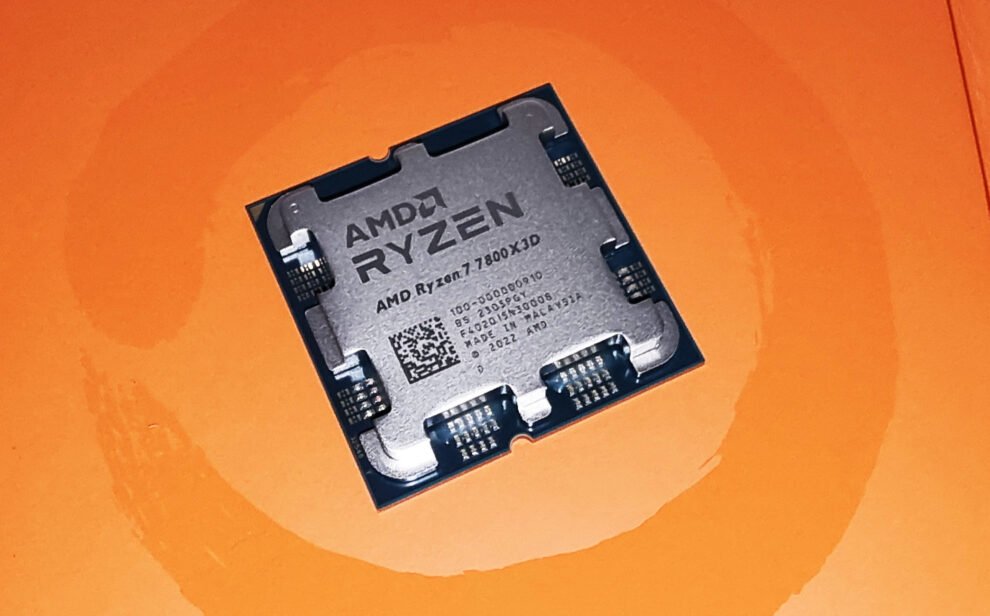In the landscape of AMD’s innovative 3D V-Cache processors, the AMD Ryzen 7 7800X3D emerges as a paradox. While it showcases exceptional gaming prowess, its performance in compute-intensive tasks is surprisingly mediocre, making it the one AMD 3D V-Cache processor you might want to think twice about for certain applications.
Key Highlights:
- The Ryzen 7 7800X3D excels in gaming but shows only average performance in compute tasks.
- In benchmarks, it lags behind competitors like the Intel Core i5-13600K in multi-threaded performance.
- Its computational performance is comparable to the Ryzen 7 7700, despite a higher price tag.
- While efficient in gaming, its advantage in compute tasks is modest at best, especially considering its cost.
The Ryzen 7 7800X3D, equipped with AMD’s cutting-edge 3D V-Cache technology, is positioned as a gaming powerhouse. However, when it comes to tasks that demand high compute performance, such as video rendering, photo editing, and heavy computational workloads, it offers limited benefits over its predecessor, the Ryzen 7 5800X3D, and even falls short compared to its Zen 4 sibling, the Ryzen 7 7700. Benchmarks like CineBench R23 reveal that it’s outperformed by the Intel Core i5-13600K by about 33%, despite its higher price point.
Understanding 3D V-Cache
AMD’s innovative 3D V-Cache technology essentially stacks an additional layer of cache onto the processor. This significantly increases the available cache for the processor to use, especially beneficial in gaming with its fast-paced demands. The result? Noticeable improvements in frame rates and overall gaming smoothness.
Why Avoid the Ryzen 9 7900X3D
The Ryzen 9 7900X3D isn’t a bad processor, but it faces some hurdles:
- Price-to-Performance: This chip’s price remains relatively high. This creates a situation where its gaming performance gains might not justify the extra expense when compared to its siblings.
- Situational Benefits: The 3D V-Cache advantages are most pronounced in specific game titles. Certain games won’t see as much improvement, making the added cost harder to swallow.
- Strong Competition: The Ryzen 7 7800X3D offers a tantalizing blend of gaming prowess and price. Additionally, the Ryzen 9 7950X3D delivers more cores for power users and content creators, potentially making it a better choice for workstation tasks despite slightly lower gaming performance in some situations.
In power efficiency, the Ryzen 7 7800X3D is a standout, particularly in gaming scenarios. It exhibits one of the lowest peak power draws among its peers, underscoring AMD’s efficiency improvements with this generation. However, this efficiency does not translate into superior compute performance, where it remains comparable to less expensive alternatives.
The AMD Ryzen 7 7800X3D represents a niche choice within the Ryzen lineup. Its gaming performance is undeniably impressive, thanks to AMD’s 3D V-Cache technology. Nonetheless, for users whose workloads extend beyond gaming into compute-intensive tasks, the processor’s performance does not justify its price tag. Those looking for a versatile CPU that excels across a broader range of applications might find better value in other offerings, both from AMD and its competitors.






Add Comment